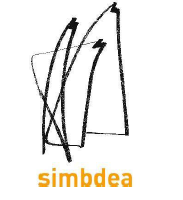ONG acreditadas que se encuentran en este país
| 12 organizaciones o instituciones corresponden a su búsqueda | |
| Nombre, dirección y fuente | Acreditación |
|---|---|
| Academia de ła Bona Creansa Academy of the Fair Courtesy [en] 31011 Asolo (TV), via Giuseppe Verdi 79/9 Italia URL: https://www.academiabonacreansa.eu Tel.: +39 333 628 7484 | Detalles |
| Associazione Cultura Italiae Association Culture of Italy [en] Via Barberini, 67, 00187 Rome, Italy Italia URL: https://www.culturaitaliae.it/ | Detalles |
| Associazione Culturale 'Circolo della Zampogna' Cultural Association 'Bagpipe Club' [en] Via Kennedy, 10 86070 Scapoli (IS) Italia Tel.: +39-0865-954002 |
2025
Detalles2021 (Informe de actividad: English) Acreditado en 2012 (Pedido: English) - n° 90222 Reunión decisionaria: 4.GA - 2012 |
| Associazione Ecomuseo Casilino ad Duas Lauros Ecomuseum Casilino ad Duas Lauros Association [en] Via Gabrio Serbelloni 57/a, 00176, Rome (Italy) Italia URL: https://www.ecomuseocasilino.it Tel.: +39 3470777788 | Detalles |
| Associazione per la conservazione delle tradizioni popolari Association for the Preservation of Popular Traditions [en] Piazzetta Antonio Pasqualino, 5 90133 Palermo Italia URL: https://www.museodellemarionette.it URL: https://www.facebook.com/museoantonio.pasqualino URL: https://twitter.com/MuseoPasqualino Tel.: +39 91 328060 |
2027
Detalles2023 (Informe de actividad: English) Acreditado en 2014 (Pedido: English) - n° 90316 Reunión decisionaria: 5.GA - 2014 |
| Associazione Sant'Antuono & le Battuglie di Pastellessa Sant'Antuono & the Battuglie of Pastellessa Association [en] Corso Umberto I, 13 81047 Macerata Campania (Caserta) Italia URL: https://www.santantuono.it Tel.: 0039 333 37 99 846 |
2027
Detalles2023 (Informe de actividad: English) Acreditado en 2014 (Pedido: English) - n° 90242 Reunión decisionaria: 5.GA - 2014 |
| Centro Etnografico delle Isole Campane Ethnographic Center of the Campane Islands [en] Via Ulisse,26 80077 Ischia (Na) Italia URL: https://www.ethnoi.it Tel.: +39-081-984704; +39-3497504280 | Detalles |
| Fondazione Santagata per l'Economia della Cultura ETS (ente del terzo settore) Fondazione Santagata for the Economics of Culture ETS (third sector entity) [en] Headquarter: Corso Duca degli Abruzzi 43 10129 Torino Offices: Via San Francesco da Paola 25 10123 Torino Italia URL: https://www.fondazionesantagata.it Tel.: +39 33 98 38 18 69 | Detalles |
| International Organization of Folk Arts (IOV) International Organization of Folk Art - IOV [en] Comité international des arts et traditions populaires - IOV [fr] Mr Fabrizio Cattaneo IOV World General Secretary Via Pietro Spino 102 24126 Bergamo Italia Mr Ali Khalifa IOV World President PO Box 5050 The Kingdom of Bahrain Italia URL: https://www.iov.world Tel.: +39 335 54 30 256 |
2027
Detalles2023 (Informe de actividad: English) Acreditado en 2010 (Pedido: English) - n° 90154 Reunión decisionaria: 3.GA - 2010 |
| O.R.S. Osservatorio Ricerca Sociale. Centro studi, politiche e ricerche sociali - APS O.R.S. Social Research Observatory. Centre studies, policies and social researches - APS [en] 2, Via Trappeti 73039 Tricase (LE) Italia URL: https://www.liquilab.it Tel.: +39 348 3467609 | Detalles |
 SIMBDEA, Società Italiana per la Museografia ed i Beni Demoetnoantropologici SIMBDEA, Società Italiana per la Museografia ed i Beni DemoetnoantropologiciItalian Society for Museum and Heritage Anthropology - SIMBDEA [en] Museo internazionale delle marionette Antonio Pasqualino Piazetta Antonio Pasqualino 5 90133 Palermo Italia URL: https://www.simbdea.it Tel.: 0039 91 32 80 60 |
2027
DetallesDescargar brochure2023 (Informe de actividad: French) Acreditado en 2010 (Pedido: English) - n° 90031 Reunión decisionaria: 3.GA - 2010 |
| Unione Nazionale Pro Loco d'Italia Italian Network of Pro Loco Associations - UNPLI [en] Piazza Flavio Biondo, 13 00153 Roma Italia URL: https://www.unpli.info Tel.: +39 06 99 22 33 48; + 39 06 58 12 946; +39 328 3894658 |
2025
Detalles2021 (Informe de actividad: English) Acreditado en 2012 (Pedido: English) - n° 90211 Reunión decisionaria: 4.GA - 2012 |